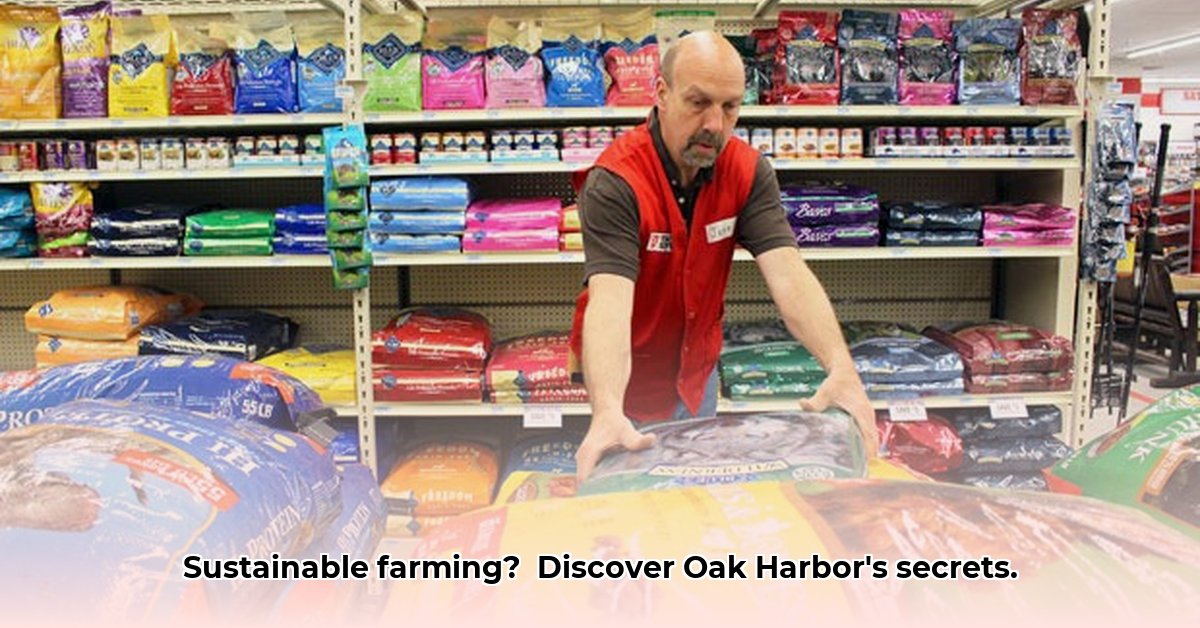
Oak Harbor Tractor Supply (OTS) serves as a vital resource for farmers and gardeners in the community, offering a wide array of products from animal feed to agricultural equipment. This article investigates OTS's contribution to sustainable agriculture in Oak Harbor, analyzing its product offerings, sustainability practices, and potential for improvement.
Tractor Supply's Offerings: A Diverse but Unclear Picture
OTS stocks a comprehensive range of products, including conventional and organic animal feeds, various fertilizers and pesticides, water conservation tools, and a selection of seeds and plants. While some offerings directly support sustainable agricultural methods, others lack clear sustainability credentials. The availability of locally sourced goods remains unclear, as does the environmental impact of the products' manufacturing and transportation. The diverse brands stocked further complicate a simple assessment of OTS’ overall sustainability. A lack of readily available information regarding sourcing and manufacturing processes hinders a complete evaluation.
Analyzing Sustainability: A Lack of Transparency
A critical assessment of OTS's sustainability is hampered by a lack of transparency. Their website offers minimal information on their sustainability initiatives. The absence of readily available data concerning product sourcing (are materials locally sourced? Are sustainable manufacturing practices employed?), packaging (recyclability, compostability), and broader company commitments to sustainability presents a significant barrier to a complete analysis. This opacity makes it challenging to evaluate the true ecological footprint of OTS’ operations and its ultimate contribution to sustainable agriculture in Oak Harbor. Are they truly a partner in sustainable practices or simply participating in a broadly-defined agricultural market? The information needed to answer that question is currently inaccessible.
Comparing OTS to Competitors: A Needed Benchmark
To gauge OTS's commitment to sustainability, comparing it to competitors with explicit sustainability programs is crucial. Many retailers actively promote sustainable agricultural products, providing a useful benchmark. A comparison focusing on the availability of organic and biodynamic options, partnerships with local producers dedicated to sustainability, and the use of eco-friendly packaging would provide valuable insight into OTS's relative performance within the market. Such a comparison would reveal whether OTS proactively leads the way in sustainability or lags behind its rivals.
Gaps in Information and Future Research: The Need for Transparency and Data
The analysis presented here is limited by the lack of readily available data. Comprehensive research into several key areas is essential:
- Product Sourcing: A detailed investigation of the supply chain, from origin to shelf, is necessary, including an assessment of suppliers’ sustainability practices and the associated environmental impact of transportation.
- Packaging Evaluation: A thorough analysis of packaging materials, including recyclability, compostability, and the overall volume of generated waste, is crucial.
- Company Sustainability Policies: A complete assessment of OTS's internal sustainability policies and practices, including waste management, energy consumption, and initiatives to lessen its environmental footprint, is required.
- Community Impact Assessment: A study determining the tangible effects OTS has on the local farming community, beyond stated goals, is needed. This includes analyzing farmer adoption rates of sustainable practices as a result of OTS's product offerings.
Actionable Recommendations: A Collaborative Approach
Addressing the lack of sustainable agricultural practices in Oak Harbor requires a collaborative approach involving multiple stakeholders:
- Farmers: Evaluate product offerings from OTS, prioritizing suppliers committed to sustainability and supplementing purchases with locally sourced goods whenever possible.
- Oak Harbor Tractor Supply: Conduct a comprehensive sustainability audit of their entire supply chain, publicly reporting findings and committing to meaningful changes. This includes a transition to eco-friendly packaging and a substantial increase in the availability of sustainable products.
- Community Members: Actively support local farmers' markets and businesses promoting sustainable agriculture, and hold OTS accountable for its sustainability performance through direct engagement (e.g., letters, petitions).
- Local Government: Offer incentives for farmers adopting sustainable practices and invest in research tailoring sustainable methods to Oak Harbor's specific conditions.
Conclusion: A Call for Transparency and Action
While OTS serves a vital role in the Oak Harbor agricultural community, a definitive assessment of its contribution to sustainable agriculture is hindered by a lack of readily accessible information. Transparency from OTS, along with a collaborative effort from farmers, the community, and local government, is essential to foster a more environmentally sustainable agricultural future in Oak Harbor. The time for action is now. Demand transparency and support sustainable practices.